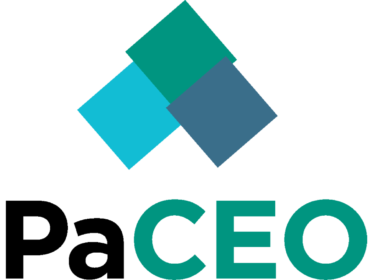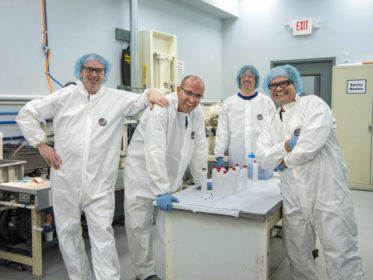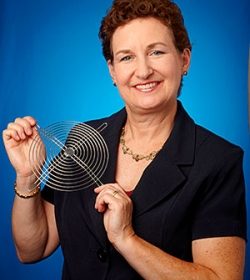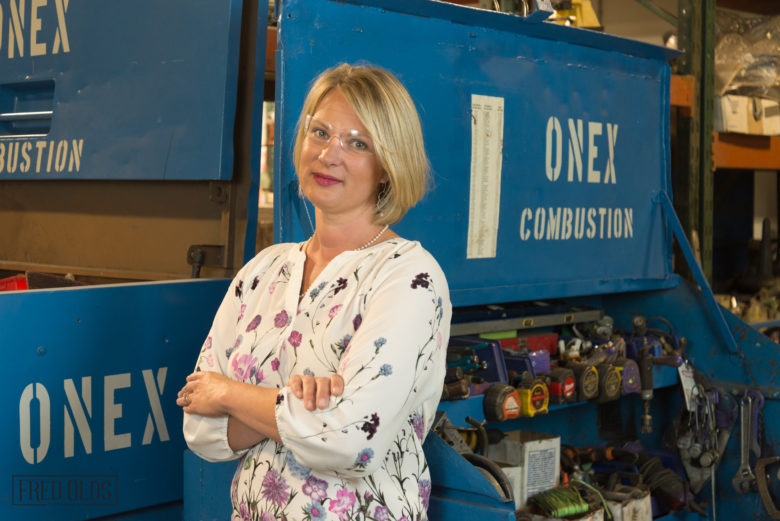
Ashleigh Walters, President of Onex, Inc., first heard of ESOPs – Employee Stock Ownership Plans – in November 2019 while sitting on a succession planning panel at a local workforce event.
She had planned on leaving the event immediately at the conclusion of her panel but found herself staying to hear Kevin McPhillips talk about ESOPs – something she didn’t understand but wanted to learn more about.
Fast-forward to July 15, 2020, when she and her husband Drew sold the company to their employees – and in the process, making it stronger than ever.
However, while the actual transition to employee ownership was seven months, the company change began in 2013, when Ashleigh’s father-in-law, and owner of the company, asked her and Drew to step up due to the huge challenges he was facing.
Rebuilding culture after toxic CFO/GM leaves
A staple in the Erie, Ohio community for over 50 years, Onex began as a refractory distributor to local foundries and grew to serve the heat treat industry. Today, the company is a custom furnace manufacturer that designs, fabricates, and services its American-made products found in companies across the United States.
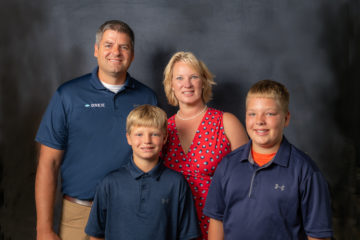
“I joined Onex in 2003 as a technical salesperson for the pulp and paper industry. In 2009, I became primarily a stay-at-home mom but worked on some special projects for Onex over the years,” says Ashleigh. “Drew ran our southeastern branch.”
Ashleigh’s father-in-law had always run the company but in 2007 decided to hire an experienced leader to give the company more structure. The person hired served as CFO/GM; however, his “command and control” leadership style tore the company apart.
In 2013, the CFO quit in anger over a disagreement about which accounting system to use.
“The company was in turmoil,” said Ashleigh. “Distrust between employees and management was rampant. I found myself traveling back and forth between Charlotte, our home, and Erie twice a month as Drew’s father asked for my help getting the accounting system installed. We were still using a legacy DOS-based system and needed accurate financial data.”
The family members knew they had to rebuild trust with employees and began by simply asking questions.
“After I got my engineering degree, my dad said, ‘Your degree doesn’t mean you know everything. You still need to go to the plant and ask people closest to the work how they solve problems.’ He was so right!”
The constant asking of questions helped employees to relax; slowly they opened up with answers. The management team’s response was, “Ok, let’s fix it. What resources do you need?”
The management team worked hard to let employees know it was ok to speak up and that they wouldn’t be punished or lose their jobs. They were also given the freedom to make decisions.
“It took a long time to rebuild trust,” said Ashleigh.
“Coach approach” to solving problems
In 2017, Ashleigh received training from Women in Manufacturing through a program held in partnership with Case Western Reserve University. Through this program, she was exposed to the “coach approach” idea of management.
With the coach approach, the management team is trained to help employees make decisions on their own – versus telling them what to do (e.g. “command and control”).
The training changed her perspective. Before Onex’s annual review process in 2019, for example, she began asking, “‘What if we looked forward versus backward?’ Everyone hated the annual review process, so after some discussion, we got rid of it.”
Working with their MEP, the Onex management team underwent training in the coach approach, as well as continuous improvement. By the time the pandemic hit in March 2020, all their preparation paid off.
“Things changed so fast that month,” she says. “But due to our coach approach and the trust we had built with employees, we remained extremely agile in the midst of turmoil.”
And, it was this work that paved the way for Ashleigh and Drew to explore transitioning the company to an ESOP.
Says Ashleigh, “Being an employee owner means that while they own shares and participate in the growth of the company, they don’t manage the company. It’s similar to owning shares of stock. The biggest change, however, is that employees are now looking for problems to solve, and there’s positive peer pressure to do the right thing.”
Ashleigh’s biggest piece of advice to owners of manufacturing companies considering an ESOP: “You cannot possibly educate yourself and know everything needed to complete this process. You need to assemble the right team of people – bankers and project managers to accountants and lawyers. It’s an amazing process and well worth the time and effort.”
Transitioning to employee ownership: Timeline
November 2019 – Ashleigh first learns about ESOPs when she meets Kevin McPhillips, Executive Director/CEO of the non-profit Pennsylvania Center for Employee Ownership (PaCEO).
December 2019 – February 2020 – Ashleigh and Drew educate themselves about ESOPs and discuss whether it made sense for their company.
According to Ashleigh, they were very young – in their 40s – to begin thinking about succession planning. However, the more they learned about how an ESOP worked, the more they realized it would help their company, employees, and their community (see the piece on page 5 for details about ESOPs).
March 9, 2020 – Kevin McPhillips from PaCEO presents information about ESOPs to the Onex management team. Kevin tells the team, “This is an amazing opportunity for your organization.”
In order to not stress employees with rumors that they were selling the company, Ashleigh asks the team to keep the information confidential.
March 18, 2020 – Governor Tom Wolf shuts down all businesses in Pennsylvania. Because they’re a DoD supplier, Onex continues operations – and moving forward with the ESOP while dealing with the pandemic.
The Onex leadership team is fully onboard.
March – June 2020 – The Onex team encounters a few hiccups along the way, including banks pulling back on lending due to the pandemic, but they continue to push ahead.
July 15, 2020 – The Onex team closes the deal.
Due to summer shutdowns (when Onex technicians travel to customers’ facilities to service furnaces), management delays telling employees. “Employees were owners for six weeks and didn’t know!” said Ashleigh.
August 21, 2020 – The Onex team announces that employees now own the company at a Friday meeting (and surprise party). When employees hear the news, some cry.
To learn more about Onex, visit their website at onixinc.com

